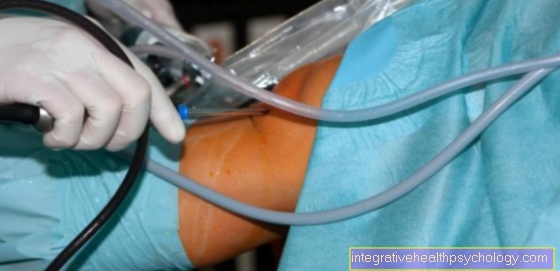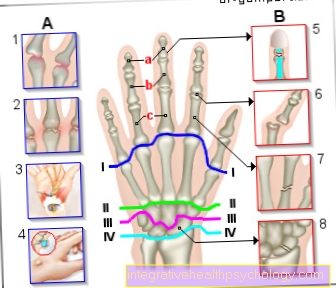Care level 4
definition
Care level 4 describes the “most severe impairment of independence”. People with severe care needs who are assigned to this level of care receive corresponding benefits from the long-term care insurance. Those affected must submit an application for the degree of care, which is checked by an expert from the medical service of the health insurance (MDK) or MEDICPROOF for privately insured persons.
In addition to new applications for the need for care, those in need of care with care level 3 and care level 2 plus limited everyday skills also receive care level 4.

What are the requirements for care level 4?
In order to receive care level 4, an application for care level must first be submitted. The application is submitted by the person concerned himself or by a legal guardian. Finally, an assessor from the MDK or MEDICPROOF determines the level of care for the application using the “New Assessment Assessment” (NBA).
The NBA consists of 6 different modules, each with a certain number of points leading to a test result that assigns a care level to the person in need of care.
- 10% of the “Mobility” module is included in the NBA. This includes moving or moving those affected in everyday life or a change of position / change of position.
- "Cognitive and communicative skills" make up 7.5% of the achievable score. This refers to a place and time orientation and how the patient concerned is involved in conversations. Understanding of the conversations and prompts also play a role in the assessment of communication skills.
- The module “Behaviors and psychological problems” is only included in the study with 7.5%. This refers to aspects such as nocturnal restlessness or aggression, both physically and verbally.
- A full 40% of the possible number of points make up topics that fall under the category of “self-sufficiency”. This includes personal hygiene, dressing, and the food and fluid intake of the person in need of care.
- The fifth module is called “Coping with and dealing independently with demands and stresses caused by illness or therapy”. 20% of it is included in the questions of the NBA and includes, for example, injections of medication, stoma and wound care, and visits to the doctor.
- The last module is the “design of everyday life and social contacts”. This module makes up 15% of the score of the new assessment assessment. taining contacts, independent employment and the organization of the daily routine are important aspects when evaluating this module.
A total of 100 points can be achieved. The prerequisite for receiving care level 4 is that the person in need of care receives a score between 70 and under 90 points in the NBA.
This article might also interest you: Care levels and care levels
What benefits do you get with care level 4?
People in need of care with care level 4 are entitled to various benefits from the care fund. Since the people in need of care are severely impaired in their independence and depend on help, they receive a comparatively large amount of help from long-term care insurance.
- Those in need of care initially receive care allowance if they are cared for by relatives or friends / acquaintances in their own home. Those in need of care are entitled to a care allowance of € 728 per month.
- In addition, those in need of care with care level 4 receive so-called care benefits in kind. If the person in need of care is cared for in their home environment by an outpatient care service, they are entitled to care benefits in kind amounting to € 1,612 per month. The care benefits in kind are intended for care, support and help with housekeeping.
- Since 2017, those affected have also been entitled to the new “relief contribution”. This is € 125 per month and is meant for support and relief services. This means, for example, participation in support groups for mental and physical activation and an everyday companion for walks, shopping or household help.
- In addition, those in need of care are entitled to short-term care after a stay in hospital. You are entitled to a short-term care allowance worth € 1,612.
- In addition, there is a so-called prevention care. In the event that the caring relative / friend / acquaintance of the person in need of care is sick himself or is on vacation, the person in need of care can receive "preventive care" from professional caregivers. There are € 1,612 available for this 28 days a year.
- People in need of care with care level 4 receive € 1,612 per month for day and night care.
- People in need of care can also apply for funding for care aids, living space adjustments and care courses for relatives. Those affected are entitled to € 40 per month for medical aids, such as disposable gloves, disinfectants or bed protection pads. For medically necessary living space, measures of up to € 4,000 are financed by the long-term care insurance. This means conversions, such as the installation of a stair lift or a barrier-free bathroom with a shower for the disabled, etc.
- If the person with care level 4 needs care in a nursing home, the nursing care insurance guarantees € 1,775 per month for care and support in a nursing home (inpatient care). Unfortunately, this often does not cover the costs for the nursing home and residents have to pay their own contribution.
You may also be interested in this topic: Care level 5
What remuneration do you get when caring as a relative?
If you, as a relative, friend or acquaintance, care for someone in need of care with care level 4, you will receive a monthly care allowance of € 728. The caring relatives are also entitled to free care courses. These have been offered by long-term care insurance funds in accordance with Section 45 SGB XI since 2017.
Further information can be found on the following page: domestic care
How do I apply?
There are various options for applying for a degree of care. One possibility is a direct call to the health insurance company. The health insurance company with which you are insured is associated with the responsible long-term care insurance company.Either you can be connected to the long-term care insurer via the health insurance company or, if you have the contact details, you can call the responsible long-term care insurer directly. You tell by phone that you want to apply for a specific person or yourself.
You can also try to submit an application in writing. To do this, write a letter with the words "I hereby apply, XY, the benefits of long-term care insurance and ask for a short-term assessment." You also add your full name, address and insurance number. You can send this letter to the health insurance company, which then forwards the application to the long-term care insurance company, or send it directly to the long-term care insurance company.
In addition, in many places there is the possibility of registering at a “care support point” on site and applying with support.
You may also be interested in applying for a power of attorney. Read more about this at: Health care proxy - everything to do with the topic!
Where do you apply?
The application for a care level is submitted to the care insurance. The long-term care insurance funds are responsible for social long-term care insurance. Long-term care insurance is linked to health insurance. This means that if I am insured with TK or AOK, the care fund responsible for me can be found there. I can submit the application directly to the long-term care insurance or to my health insurance, which then forwards the application.
You can submit the application on site at a branch of the health insurance company, but also by telephone or post. There are “care support points” in larger cities. There are helpers there who support you with the application for a degree of care.
Short term care
Short-term care refers to full inpatient care that a person in need of care needs, for example after a hospital stay. A person in need of care with care level 4 is entitled to a grant of up to € 1,612 for short-term care up to 28 days a year. This means that if a person in need of care needs intensive (fully inpatient) care after a hospital stay, he or she is subsidized by the long-term care insurance for four weeks.
There are special features. If the person in need of care does not require any "preventive care" in the current year, they are entitled to a grant of up to € 3,224 for a maximum of 8 weeks of short-term care. The long-term care funds grant those in need of care with care level 4 half of their care allowance, i.e. € 364 per month, for up to 8 weeks of short-term care.





























